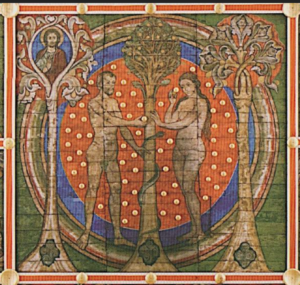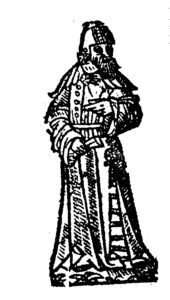Some editors are failed writers, but then, so are most writers.
According to a Russian Proverb
The church is near but the road is icy; the bar is far away but I’ll walk carefully.
Adam and Eve and Christmas
Continuing our dive deep into Christmas lore, I present you today with a connection between the Book of Genesis and Christmas.
Adam and Eve, the ancestors of the human race, were first honoured as saints in the churches of Eastern Christianity and during the Middle Ages their cult spread into the West. Though the Catholic church never officially recognized them with a feast day, popular veneration of Adam and Eve was widespread, particularly on December 24 when it was thought fitting that those responsible for the Fall of mankind be linked with the birth of the Saviour who came to redeem humanity.
Medieval dramas which told the story of Adam and Eve had as a stage prop a tree representing the Garden of Eden and the Tree of the Fruit of the Knowledge of Good and Evil. This tree was decorated with apples or round wafers representing the host of the Mass and it is this “Paradise Tree” which many historians see as a precursor to the modern Christmas tree. This link is evident when we note that as late as the nineteenth century some American and German Christmas trees had images of Adam and Eve and the Serpent underneath them. Godey’s magazine claimed “an orthodox Christmas-Tree will have the figures of our first parents at its foot, and the serpent twining itself around its stem.” Apples were placed on the table on Christmas Eve to recall those through whose sin mankind first fell as well as the Virgin Mary, the new Eve.
According to Francis Bacon
A man that studieth revenge keeps his own wounds green, which otherwise would heal and do well.
A New Approach
Being the world’s foremost authority on the history of Christmas carries a heavy responsibility and I realize I have been shirking my duty by not using this space to spread the good news about the world’s favourite holiday. So farewell “Today In History”, and “Today in Church History”; (“Something Wise” will continue until the end of the month). For the foreseeable future it’s all Christmas, all the time.
And so let us begin.
What we have here is the earliest known artistic portrayal of Father Christmas, a woodcut illustrating a 1624 ballad lamenting the loss of hospitality during the holiday season. Some elements of his appearance will be constant over the centuries — a round hat, a long coat, a beard and an antiquarian aspect; he is always meant to represent a figure out of the past.
At this stage, Father Christmas, or Old Christmas, or Captain Christmas was simply meant to personify the festival. The name is not attached to a magical Gift-Bringer until the 19th century.
According to Albert Camus
Don’t wait for the last judgment; it takes place every day.
According to Georges Duhamel
It is always brave to say what everyone thinks.
According to Rudyard Kipling
“Being kissed by a man who didn’t wax his moustache was like eating an egg without salt.”
According to Thomas Dekker
“Were there no women, men might live like gods.”
According to André Breton
“The simplest act of surrealism is to walk out into the street, gun in hand, and shoot at random.”

